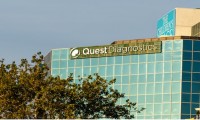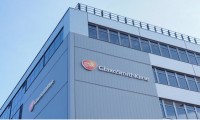-
Fructose identified as central conduit to obesity
- Source: drugdu
- 120
- August 3, 2023
-
Quest Launches Alzheimer’s Beta-Amyloid Blood Test for Consumers
- Source: drugdu
- 213
- August 3, 2023
-
GSK’s Jemperli Beats Merck’s Keytruda for Frontline Endometrial Cancer Approval
- Source: drugdu
- 120
- August 3, 2023
-
New study finds vaccines could avert 500,000 antimicrobial resistance deaths each year
- Source: drugdu
- 89
- August 3, 2023
-
As COVID revenues disappoint, once-high-flying Pfizer looks at possible cost cuts
- Source: drugdu
- 167
- August 3, 2023
-
US DoD backs potential treatment for Fragile X-linked neurodegenerative disorder
- Source: drugdu
- 97
- August 3, 2023
-
Neuraxpham gears up to market TG’s relapsing MS treatment Briumvi in Europe
- Source: drugdu
- 194
- August 3, 2023
-
Integra warns impact of plant closure will continue into 2024, with delays possible
- Source: drugdu
- 133
- August 2, 2023
-
Searchlight licenses Mithra’s menopause drug Donesta for Canadian market
- Source: drugdu
- 213
- August 2, 2023
-
GSK beats Merck to first PD-1 approval in newly diagnosed endometrial cancer
- Source: drugdu
- 105
- August 2, 2023
your submission has already been received.
OK
Subscribe
Please enter a valid Email address!
Submit
The most relevant industry news & insight will be sent to you every two weeks.













